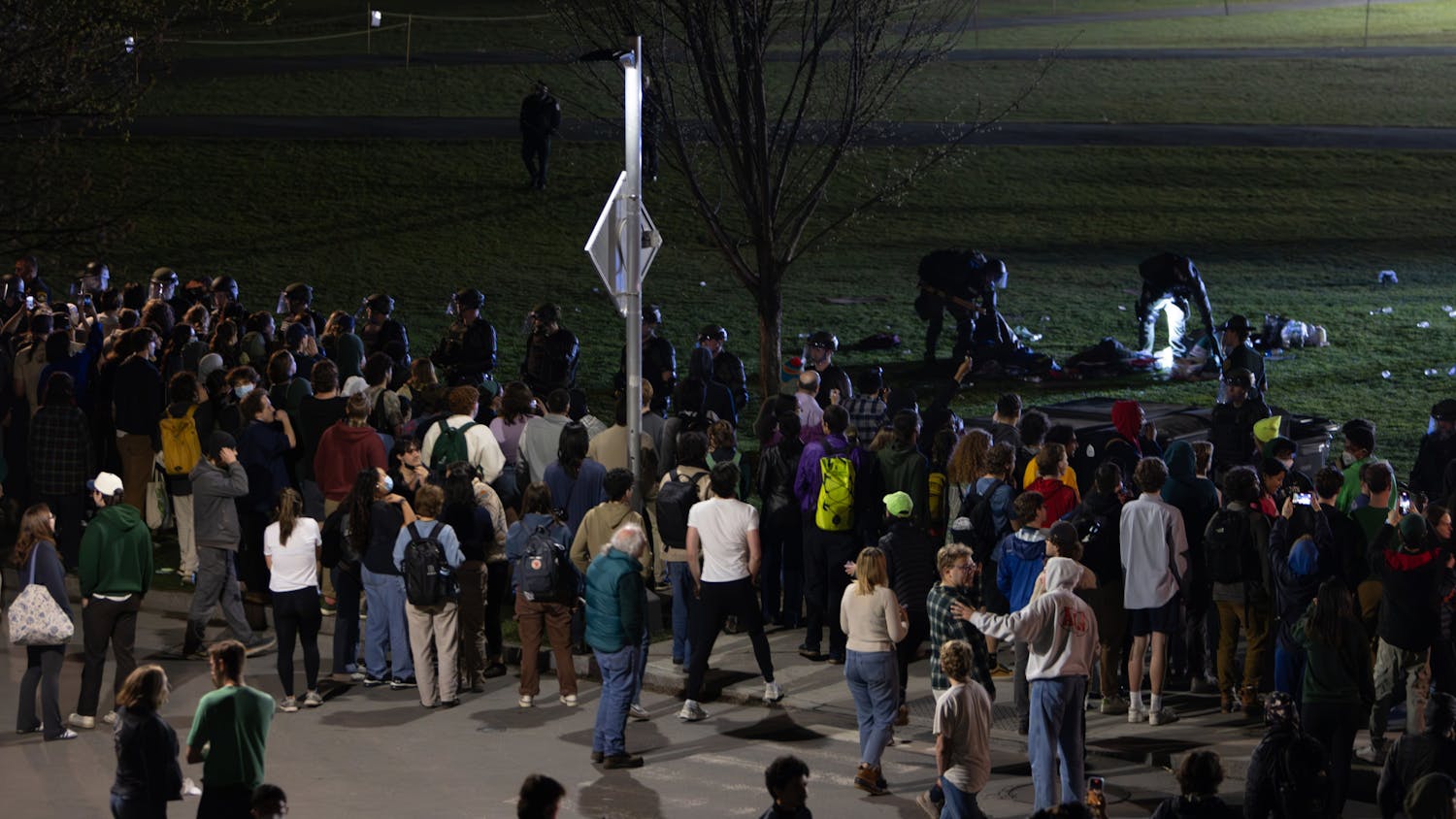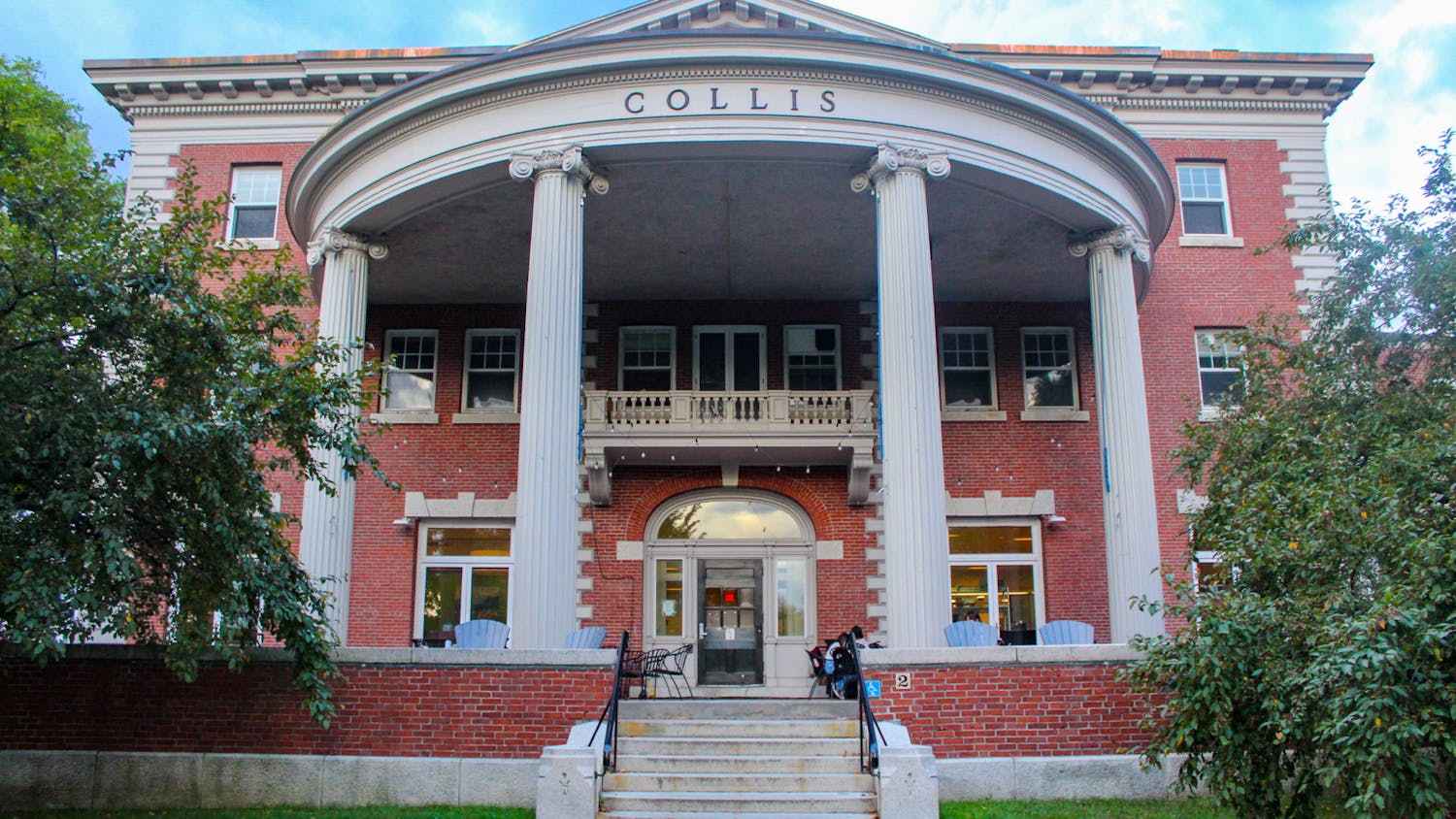The Wellness at Dartmouth office has launched its second annual “Move It Challenge” for faculty and staff this week with a series of kick-off walks for community members. The eight-week event, which takes places from April 6 to May 31, encourages participants to log at least 37,500 steps per week to promote personal health, director of health promotion and wellness Melissa Miner wrote in an email interview.
“It’s a great program that can help nudge all of us to find ways to be more active within our day,” she wrote.
The wellness office offered the team-based program for the first time in 2014 to College employees and spouses, she said. Over 1,600 people participated last year, logging a total approaching nearly 800 million steps, according to the program’s website. Miner wrote that she could not offer an estimate of participation for the 2015 challenge, as registration is still ongoing.
Ted Bush, a technical writer for Geisel Medical School’s bioinformatics group, was the captain of last year’s winning team. He said that he contributed nearly 2.25 million steps to his team’s overall total by playing squash, lifting weights, doing Kung Fu and biking, among other physical activities.
Bush said that he is participating in the challenge again this year, but is doing so alone. He said that the rest of his team was reluctant to sign up again because of the significant time commitment, which at times involved two workouts a day.
Participants in the program receive a pedometer or a $10 discount on an activity device from the college computer store to record their steps, Miner said. Individuals or teams who meet the weekly goal of 37,500 steps are entered into prize drawings each week for Alumni Gym memberships, training sessions at Zimmerman Fitness Center and Fitbit wireless activity tracking devices, among other prizes. The top three teams or individuals will receive prizes, as well as the three most-improved teams and individuals.
Miner explained that the changes to the challenge this year reflect feedback from past participants. She said that improvements include smaller team sizes, different pedometer devices, the option to participate individually and a simplified weekly step goal.
Bush said that one of the reasons the members of his former team did not want to participate this year was that the prizes for winning the challenge were “underwhelming.” He noted that he thought there was less enthusiasm about the program this year from the faculty and staff, which he attributed to less advertising.
Geisel neurology professor Andrew Connolly said that he has not signed up for the challenge and was not aware of the details of the program, but thought it has a good chance of being successful.
“Anything like this is positive,” he said. “I think we have a community around here in the Upper Valley that is really supportive of these kind of athletic events and community things. Dartmouth has been making pretty good efforts towards preventative health.”
Connolly cited Dartmouth Health Connect, a Hanover primary care organization targeted specifically to College employees, as a successful health care initiative started by the College to benefit its faculty and staff. He added that he has participated in Fitness and Lifestyle Improvement Program courses run by the athletic department to increase health awareness and general fitness in the community, including teaching an alpine skiing course at the Dartmouth Skiway the previous year
Campus leaders, wellness office staff and student athletes will lead walk/run events from April 7 to 9 in the Hanover area to kick-off the event.



